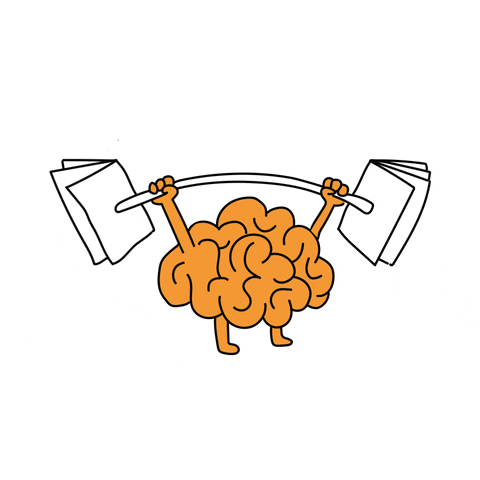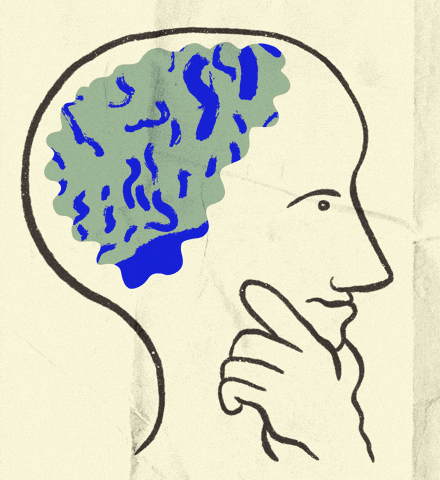présentations
* indique une contribution égale et co-auteur principal
Veuillez consulter Google Scholar pour une liste plus à jour de mes publications.
présentations orales
2025
- Cohorte MAVAN
 Family resilience predicts COVID-19 psychopathology in youth with perinatal maternal adversity: Findings from the MAVAN birth cohort
Family resilience predicts COVID-19 psychopathology in youth with perinatal maternal adversity: Findings from the MAVAN birth cohort
[affiche]C. VoyerJewish General Hospital - Department of Psychiatry Student Research Day
Jun 5, 2025⭐ Best Poster Presentation Award
Background: While previous research has extensively documented the COVID-19 pandemic’s negative impact on youth mental health, less attention has been given towards identifying markers of resilience as a protective factor against pandemic-related stressors. This study examined the role of perinatal stress in youth psychopathology outcomes and indicators of family resilience during the pandemic. Methods: Longitudinal data were drawn from the Maternal Adversity, Vulnerability and Neurodevelopment (MAVAN) multi-site birth cohort, using multiple informants’ assessments (i.e., mothers, youth) collected before and during the COVID-19 pandemic from 115 youth aged 9–18 years (50.4% males; Mage = 14.4 years). Latent factor modeling examined relationships between prenatal maternal affective symptoms, perinatal socio-environmental adversity, pandemic-related family and youth resilience, and youth psychopathology. Results: We found a significant interaction between prenatal maternal affective symptoms and pandemic-related internalizing psychopathology under conditions of low maternal-reported family resilience. Additionally, several main effects of family resilience (i.e., family organization patterns, caregiver support, primary control coping) were associated with reduced youth psychopathology during the pandemic. Conclusion: These findings highlight the protective role of family resilience in mitigating youth psychopathology amidst pandemic-related stressors. This study emphasizes the importance of caregiver support and structured family organization patterns in shaping effective mitigation strategies during global crises.
@presentation{laplanteFamilyResiliencePredicts2025, title = {Family resilience predicts COVID-19 psychopathology in youth with perinatal maternal adversity: Findings from the MAVAN birth cohort}, trans_title = {Predictors of youth psychopathology and resilience during the pandemic}, author = {Voyer, Chloé}, year = {2025}, month = jun, day = {5}, conference = {Jewish General Hospital - Department of Psychiatry Student Research Day}, location = {Montreal, QC Canada}, editora = {Freddy-Ateba, François and Wang, Xinni and Wang, Yifan and Wazana, Ashley D. and Laplante, David P.}, editoratype = {collaborator}, type = {poster}, gallery = {JGH-25}, }×Family resilience predicts COVID-19 psychopathology in youth with perinatal maternal adversity: Findings from the MAVAN birth cohortJewish General Hospital - Department of Psychiatry Student Research Day - Jun 2025Chloé VoyerNo images found in the specified folder. - TDAH@travail
.gif) Intervention efficacy targeting quality of work life in adults living with ADHD: A randomized controlled trial
Intervention efficacy targeting quality of work life in adults living with ADHD: A randomized controlled trial
Dans Stephen Faraone & Luis A. Rohde (resp.), Early Career Scientist Award Symposium dedicated to Joseph Biederman
[symposium]C. Voyer10th World Congress on ADHD
May 8–11, 2025⭐ Won an Early Career Scientist Award at the 10th World Congress on ADHD
Objective: While psychosocial interventions for attention-deficit/hyperactivity disorder (ADHD) exist for children, there is a gap in addressing ADHD symptoms that persist into adulthood, particularly those impacting occupational functioning. The Minds@Work-ADHD study is a randomized control trial to assess the efficacy of a novel workplace intervention aimed at enhancing quality of work life (QWL) in adults with ADHD. Methods: Eligible participants (N = 20) were randomly assigned to either a control condition or an 8-week manualized online group intervention. Outcome measures included QWL and cognitive functioning at work, assessed at baseline and post-intervention. Preliminary analyses were performed on the first cohort of participants from the larger study (target N = 60). Discussion: At baseline, all participants reported severe ADHD symptoms (M = 64.7, SD = 6.8) with no group differences. Repeated measures ANOVA revealed a significant Time effect for cognitive functioning (F(1, 18) = 10.75, p = .004, ηp² = 0.371). While the Group*Time interaction was not significant, intervention participants showed a 5.6% increase in QWL over the study period, versus 0.2% in controls. Updated findings with the full sample will be presented. Conclusion: To our knowledge, this is the first randomized control trial examining the effect of an occupational intervention in adults with ADHD. Despite non-significant p-values, the large effect size suggests promising clinical relevance. Manualized group interventions administered virtually may provide a cost-efficient solution to improve cognitive functioning at work in adults living with ADHD.
@presentation{voyerInterventionEfficacyTargeting2025, title = {Intervention efficacy targeting quality of work life in adults living with ADHD: A randomized controlled trial}, author = {Voyer, Chloé}, year = {2025}, month = may, day = {8-11}, location = {Prague, Czech Republic}, type = {symposium}, conference = {10th World Congress on ADHD}, symposium = {Early Career Scientist Award Symposium dedicated to Joseph Biederman}, chair = {Stephen Faraone & Luis A. Rohde}, editora = {Corbière, Marc and Stamate, Alina and Villotti, Patrizia and Gold, Ian and Sauvé, Geneviève}, editoratype = {collaborator}, gallery = {ADHD-25} }×Intervention efficacy targeting quality of work life in adults living with ADHD: A randomized controlled trial10th World Congress on ADHD - May 2025Chloé VoyerNo images found in the specified folder. - Cohorte MAVAN
 Prédicteurs de la santé mentale et résilience chez les jeunes en pandémie
Prédicteurs de la santé mentale et résilience chez les jeunes en pandémie
[communication orale]C. Voyer92e Congrès de l’Acfas
May 5–9, 2025Contexte : La présente étude visait à examiner le rôle du stress périnatal sur les résultats psychopathologiques et les indicateurs de résilience psychologique chez les jeunes, en reconnaissant la nécessité de comprendre les facteurs de protection face aux défis posés par la pandémie. Méthodes : Les données issues de la cohorte de naissance longitudinale multisites collectées avant et pendant la pandémie COVID-19 auprès de plusieurs informateurs, ont servi de base à notre étude. L’étude a impliqué 115 dyades mère-enfant (58 garçons, 57 filles), avec des jeunes âgés de 9 à 18 ans. Une modélisation de facteurs latents, incluant l’humeur maternelle périnatale, l’adversité socio-environnementale, la résilience familiale et des jeunes liée à la pandémie, ainsi que la psychopathologie des jeunes, a été utilisée pour analyser les relations entre ces différents facteurs. Résultats : Les résultats ont révélé une augmentation de la psychopathologie générale chez les jeunes liée à la pandémie. Une interaction significative et plusieurs effets principaux de la résilience (modèles d’organisation familiale et soutien des aidants) ont été observés sur les niveaux de psychopathologie des jeunes pendant la pandémie. Conclusion : Nos résultats suggèrent la nécessité d’interventions préventives adaptées aux personnes présentant un risque accru, en mettant l’accent sur le rôle du soutien des aidants et des modèles d’organisation familiale comme facteurs de protection potentiels.
@presentation{voyerPredicteursSanteMentale2025, title = {Prédicteurs de la santé mentale et résilience chez les jeunes en pandémie}, trans_title = {Predictors of youth psychopathology and resilience during the pandemic}, author = {Voyer, Chloé}, year = {2025}, month = may, day = {5-9}, conference = {92e Congrès de l'Acfas}, location = {Montreal, QC Canada}, editora = {Freddy-Ateba, François and Wang, Xinni and Wang, Yifan and Wazana, Ashley D. and Laplante, David P.}, editoratype = {collaborator}, type = {oral}, } - TDAH@travail
.gif) Preliminary findings on the efficacy of an intervention targeting quality of work life in adults with ADHD: A randomized controlled trial
Preliminary findings on the efficacy of an intervention targeting quality of work life in adults with ADHD: A randomized controlled trial
[communication orale]C. Voyer8th Annual Integrative Psychiatry Conference
Apr 25, 2025Objective: While psychosocial interventions for attention-deficit/hyperactivity disorder (ADHD) exist for children, there is a gap in addressing ADHD symptoms that persist into adulthood, particularly those impacting occupational functioning. Adults living with ADHD often face challenges in the workplace related to time management, regulating attention and emotions, task prioritization, impulsivity, and meeting deadlines. The Minds@Work-ADHD study is a randomized control trial to assess the efficacy of a novel workplace intervention aimed at enhancing quality of work life (QWL) in adults living with ADHD. Methods: Eligible participants (N = 20) were randomly assigned to either a control condition or an 8-week manualized intervention. The intervention was delivered online in a group format to adults facing challenges in the workplace related to ADHD. Outcome measures included QWL and cognitive functioning at work, assessed at baseline and post-intervention. Preliminary analyses were performed on the first cohort of participants from the larger study (target N = 60). Results: At baseline, all partic-ipants reported severe ADHD symptoms (M = 64.7, SD = 6.8) with no group differences. Re-peated measures ANOVA revealed a significant Time effect for cognitive functioning (F(1, 18) = 10.75, p = .004, ηp² = 0.371). While the Group*Time interaction was not significant, intervention participants showed a 5.6% increase in QWL over the study period, versus 0.2% in controls. Updated findings with the full sample will be presented. Conclusion: To our knowledge, this is the first randomized control trial examining the effect of an occupational intervention in adults living with ADHD. Despite non-significant p-values, the large effect size suggests promising clinical relevance for manualized group interventions administered virtually, as they may provide a cost-efficient solution to improve cognitive functioning at work in adults living with ADHD.
@presentation{voyerPreliminaryFindingsEfficacy2025b, title = {Preliminary findings on the efficacy of an intervention targeting quality of work life in adults with ADHD: A randomized controlled trial}, author = {Voyer, Chloé}, year = {2025}, month = apr, day = {25}, location = {Montreal, QC Canada}, type = {oral}, conference = {8th Annual Integrative Psychiatry Conference}, editora = {Corbière, Marc and Villotti, Patrizia and Stamate, Alina and Sauvé, Geneviève}, editoratype = {collaborator}, gallery = {AIPC-25} }×Preliminary findings on the efficacy of an intervention targeting quality of work life in adults with ADHD: A randomized controlled trial8th Annual Integrative Psychiatry Conference - Apr 2025Chloé VoyerNo images found in the specified folder. - TDAH@travail
.gif) Preliminary findings on the efficacy of a workplace intervention for adults living with ADHD: A randomized controlled trial
Preliminary findings on the efficacy of a workplace intervention for adults living with ADHD: A randomized controlled trial
[communication orale]C. VoyerDouglas Research Blitz
Mar 26, 2025Objective: The Minds@Work-ADHD study evaluates the efficacy of a workplace intervention for adults living with ADHD to improve quality of work life (QWL). Methods: In this randomized controlled trial, 20 participants were assigned to an 8-week online group intervention or control condition. QWL and cognitive functioning at work (CFW) were assessed at pre-post intervention. Results: Preliminary results showed that all participants reported severe ADHD symptoms at baseline, CFW significantly improved over time for both groups, and QWL non-significantly increased for participants receiving the Minds@Work-ADHD intervention. Conclusion: To our knowledge, this is the first randomized control trial on an occupational ADHD intervention. Despite non-significant p-values, the large effect size suggests virtual group interventions may be a cost-effective way to improve CFW and QWL.
@presentation{voyerPreliminaryFindingsEfficacy2025a, title = {Preliminary findings on the efficacy of a workplace intervention for adults living with ADHD: A randomized controlled trial}, author = {Voyer, Chloé}, year = {2025}, month = mar, day = {26}, location = {Montreal, QC Canada}, type = {oral}, conference = {Douglas Research Blitz}, editora = {Corbière, Marc and Villotti, Patrizia and Stamate, Alina and Sauvé, Geneviève}, editoratype = {collaborator}, } - Inclusion professionnelle
 Stratégies innovantes pour la participation au travail des personnes vivant avec le TDA/H et/ou le trouble de personnalité limite (TPL)G. Sauvé, N. Larivière, L. Nadeau, F. Bernier, et C. Voyer10e Colloque de professionnelles et professionnels en emploi (QUARIERA)
Stratégies innovantes pour la participation au travail des personnes vivant avec le TDA/H et/ou le trouble de personnalité limite (TPL)G. Sauvé, N. Larivière, L. Nadeau, F. Bernier, et C. Voyer10e Colloque de professionnelles et professionnels en emploi (QUARIERA)
Feb 12–14, 2025Les symptômes du TDA/H et du Trouble de Personnalité Limite (TPL) freinent la participation au travail des personnes concernées et peu d’intervention psychosociale spécialisée existe pour améliorer cette situation. Deux pratiques innovantes ont été élaborées suivant les orientations du ministère de la Santé et des Services sociaux sur le développement des pratiques de pointe. Elles sont basées sur des modèles logiques permettant d’expliciter les composantes et processus menant aux résultats désirés. Des études pilotes sont en cours pour valider ces deux interventions innovantes et les résultats préliminaires seront présentés. Dans le cadre de cet atelier, nous proposons d’exposer les défis professionnels particuliers des personnes vivant avec le TPL et/ou le TDA/H, ainsi que des stratégies concrètes pour les surmonter. De plus, nous proposons de présenter les stratégies d’implantation pérenne des pratiques innovantes dans les milieux d’employabilité.
@presentation{sauveInnovativeStrategiesSupport2025, title = {Stratégies innovantes pour la participation au travail des personnes vivant avec le TDA/H et/ou le trouble de personnalité limite (TPL)}, trans_title = {Innovative strategies to support workplace participation for people with ADHD and/or borderline personality disorder (BPD)}, author = {Sauvé, Geneviève and Larivière, Nadine and Nadeau, Laurie-Jade and Bernier, Félicia and Voyer, Chloé}, year = {2025}, month = feb, day = {12-14}, location = {Sherbrooke, QC Canada}, type = {invited talk}, conference = {10e Colloque de professionnelles et professionnels en emploi (QUARIERA)}, gallery = {QUARIERA-25}, }×Stratégies innovantes pour la participation au travail des personnes vivant avec le TDA/H et/ou le trouble de personnalité limite (TPL)10e Colloque de professionnelles et professionnels en emploi (QUARIERA) - Feb 2025Geneviève Sauvé , Nadine Larivière , Laurie-Jade Nadeau , Félicia Bernier , et Chloé VoyerNo images found in the specified folder.
2024
- Pratiques prédatrices
 Protecting academia: How to identify and avoid predatory publishing practices
Protecting academia: How to identify and avoid predatory publishing practices
[présentation interne]C. VoyerComprehensive Research Into Schizophrenia and other Psychopathologies (CRISP) Lab
Nov 1, 2024@presentation{voyerProtectingAcademiaHow2024, title = {Protecting academia: How to identify and avoid predatory publishing practices}, author = {Voyer, Chloé}, year = {2024}, month = nov, day = {1}, type = {internal}, conference = {Comprehensive Research Into Schizophrenia and other Psychopathologies (CRISP) Lab}, } - TDAH@travail
 Quand le TDAH entre au bureau : intervenir pour mieux soutenir
Quand le TDAH entre au bureau : intervenir pour mieux soutenir
[communication orale]C. VoyerColloque de la Communauté de pratiques internationale santé mentale et travail (CoP-SMT)
Oct 16–18, 2024⭐ Best Presentation Award at the CoP-SMT conference
Contexte : L’étude Cerveaux@Travail-TDAH évaluera l’efficacité d’une nouvelle intervention en milieu de travail visant à améliorer l’intégration professionnelle et la qualité de vie des adultes vivant avec des incapacités liées au trouble déficitaire de l’attention avec ou sans hyperactivité (TDAH). Cette étude met en œuvre une intervention de groupe psychosociale, adaptée aux défis spécifiques rencontrés par ces individus. Méthodes : Un essai contrôlé randomisé à simple insu sera utilisé pour évaluer l’efficacité de l’intervention. Les participants éligibles seront randomisés de manière stratifiée (âge, sexe). Le groupe expérimental recevra l’intervention Cerveaux@Travail-TDAH sur 8 semaines en virtuel, tandis que le groupe témoin bénéficiera de contacts téléphoniques hebdomadaires de 15 minutes. Les évaluations seront réalisées avant l’intervention, immédiatement après et lors de suivis trimestriels. Les participants pourront inviter des acteurs du milieu de travail à des séances virtuelles pour sensibiliser et réduire la stigmatisation liée au TDAH. Résultats : Les principaux résultats, axés sur la qualité de vie au travail, seront évalués au début de l’étude, après l’intervention et lors de suivis trimestriels. Les mesures secondaires incluent les progrès auto-rapportés vers des objectifs personnels, le fonctionnement cognitif, les compétences socio-émotionnelles, la motivation au travail et les relations en milieu de travail. Discussion : En collaboration étroite avec les parties prenantes du Regroupement des associations PANDA du Québec, la recherche-action participative a été développée de manière itérative, intégrant continuellement les contributions des parties prenantes, des patients et des acteurs en milieu de travail, assurant ainsi une approche inclusive et l’intégration continue des retombées de l’étude. Cette étude fournira des données probantes essentielles, compte tenu de la rareté des interventions psychosociales professionnelles pour les adultes vivant avec une incapacité liée au TDAH.
@presentation{voyerQuandTDAHEntre2024, title = {Quand le TDAH entre au bureau : intervenir pour mieux soutenir}, author = {Voyer, Chloé}, year = {2024}, month = oct, day = {16-18}, location = {Montréal, QC Canada}, trans_title = {When ADHD enters the workplace: Interventions for better support}, type = {oral}, conference = {Colloque de la Communauté de pratiques internationale santé mentale et travail (CoP-SMT)}, editora = {Corbière, Marc and Stamate, Alina and Villotti, Patrizia and Sauvé, Geneviève}, editoratype = {collaborator}, gallery = {CoP-SMT-24}, }×Quand le TDAH entre au bureau : intervenir pour mieux soutenirColloque de la Communauté de pratiques internationale santé mentale et travail (CoP-SMT) - Oct 2024Chloé VoyerNo images found in the specified folder. - Maintien en emploi
 Predictors of job tenure in people living with mental illness from a transdiagnostic perspective: A scoping review protocol
Predictors of job tenure in people living with mental illness from a transdiagnostic perspective: A scoping review protocol
[affiche]*K. Shulman, *M. Hannon, C. Voyer, E. Gagliano, N. Hannaoui, et 4 autres auteur·esDouglas Undergraduate Research Expo
Aug 15, 2024@presentation{shulmanPredictors2024, title = {Predictors of job tenure in people living with mental illness from a transdiagnostic perspective: A scoping review protocol}, author = {Shulman, Kayla and Hannon, Maya and Voyer, Chloé and Gagliano, Emily and Hannaoui, Nada and Hotte-Meunier, Adèle and Lavigne, Katie and Raucher-Chéné, Delphine and Sauvé, Geneviève}, year = {2024}, month = aug, day = {15}, location = {Montreal, QC Canada}, type = {poster}, conference = {Douglas Undergraduate Research Expo}, } - Protocol ECR
 Enhancing quality of life at work: A randomized controlled trial protocol
Enhancing quality of life at work: A randomized controlled trial protocol
[communication orale]C. Voyer7th Annual Integrative Psychiatry Conference (AIPC): Engaging Patients and Stakeholders via Inclusive Research
May 3, 2024Background: While the high prevalence of ADHD in children garners considerable attention, there remains a noticeable gap in addressing ADHD symptoms that persist into adulthood, thereby impeding occupational functioning. The Minds@Work-ADHD study seeks to assess the efficacy of a novel workplace intervention aimed at enhancing professional integration and quality of life for adults with ADHD. This study involves the delivery of a manualized group psychosocial intervention tailored for individuals facing challenges related to ADHD. Methods: Employing a single-blind randomized controlled design with a longitudinal cohort, eligible participants will be randomly assigned to either an eight-week intervention or a control condition. Primary outcomes, focusing on quality of life at work, will be evaluated at baseline, post-intervention, and trimonthly follow-ups. Secondary measures encompass self-reported progress towards personal goals, cognitive functioning, social-emotional abilities, work motivation, and workplace relations. This study will provide much needed evidence-based findings given the scarcity of occupational psychosocial interventions in adults living with ADHD. Patient and Stakeholder Involvement: Through close collaboration with stakeholders from the Regroupement des associations PANDA du Québec, our participatory action research was iteratively developed, incorporating continuous feedback from service providers at every stage. During the finalization of the intervention material, a focus group informed on the lived experience of individuals with ADHD. Psychosocial workers will play a pivotal role as co-facilitators, contributing their expertise and ensuring the intervention’s practicality from the perspective of frontline workers. An additional dedicated teaching capsule will engage workplace actors, with the goal of demystifying ADHD-related disabilities and offering inclusive management strategies to enhance job retention and quality of life. Workplace actors will actively participate in awareness-raising sessions, which aim to improve their mental health literacy and reduce stigma. The study, through a comprehensive action research protocol, embraces input from stakeholders, patients, and workplace actors, fostering an inclusive and integrative approach.
The Minds@Work-ADHD study is a randomized controlled trial evaluating the effectiveness of an 8-week workplace psychosocial intervention to improve quality of life, cognitive functioning, and social-emotional abilities in adults with ADHD-related disabilities.
@presentation{voyerEnhancingQualityLife2024, title = {Enhancing quality of life at work: A randomized controlled trial protocol}, author = {Voyer, Chloé}, year = {2024}, month = may, day = {3}, location = {Montreal, QC Canada}, type = {oral}, conference = {7th Annual Integrative Psychiatry Conference (AIPC): Engaging Patients and Stakeholders via Inclusive Research}, editora = {Corbière, Marc and Villotti, Patrizia and Stamate, Alina and Sauvé, Geneviève}, editoratype = {collaborator}, } - Cohorte MAVAN
 Impact of prenatal stress on youth mental health and resilience amidst the COVID-19 pandemic
Impact of prenatal stress on youth mental health and resilience amidst the COVID-19 pandemic
Dans D. P. Laplante (resp.), Identifying pathways from prenatal exposure to adult mental health: MAVAN/MAVAN-R cohort
[symposium]C. Voyer34th Life History Research Society Conference (LHRS)
May 29–31, 2024Objective: In efforts to limit the spread of COVID-19, the imposed mitigation measures (e.g., school closures, remote learning, social distancing, curfew) were particularly disruptive to the lives of adolescents. While many studies have emphasized the risks to youth mental health brought on by the COVID-19 pandemic and its associated mitigation measures, little attention has been given towards identifying markers of resilience. The present study aimed to examine the role of prenatal stress on general psychopathology outcomes and indicators of resilience in youth, recognizing the need to understand protective factors amidst the challenges posed by the pandemic. Methods: Data from the Maternal Adversity, Vulnerability and Neurodevelopment longitudinal birth cohort, collected pre and during the COVID-19 formed the basis of our examination. The study involved 144 mother-infant dyads. Maternal prenatal adversity was assessed using the Center for Epidemiologic Studies Depression Scale, the Pregnancy-Specific Anxiety scale, and measures of socio-demographic adversity. Family and youth resilience was assessed using the Family Resilience Assessment Scale, Child and Youth Resilience Measure-Revised, and Responses to Stress Questionnaire. Youth psychopathology was assessed using the Youth Self-Report, Child Behavior Checklist, Strength and Difficulties Questionnaire, and the Conners rating Scales. Latent factor modeling including prenatal maternal adversity, pandemic-related family and youth resilience, and youth psychopathology was employed to analyze the relationships between various factors. Results: Findings revealed an increase in COVID-related youth general psychopathology. While the maternal adversity × resilience interactions were not significant, resilience main effects (family organization patterns and caregiver support) were observed for COVID-related youth psychopathology and changes in youth psychopathology levels from pre-COVID-19 levels. Conclusion: This study underscored the importance of addressing the mental health implications of pandemic-related stress on the different trajectories in child development. Our results suggested the need for preventive interventions tailored to those at greater risk, emphasizing the role of caregiver support and family organization patterns as potential protective factors. Understanding these dynamics can inform targeted strategies to mitigate the detrimental effects of stress during these challenging times.
@presentation{voyerImpactPrenatalStress2024, title = {Impact of prenatal stress on youth mental health and resilience amidst the COVID-19 pandemic}, author = {Voyer, Chloé}, year = {2024}, month = may, day = {29-31}, location = {Montreal, QC Canada}, type = {symposium}, conference = {34th Life History Research Society Conference (LHRS)}, symposium = {Identifying pathways from prenatal exposure to adult mental health: MAVAN/MAVAN-R cohort}, chair = {D. P. Laplante}, editora = {Wang, Xinni and Freddy-Ateba, François and Wazana, †Ashley and Laplante, †David P.}, editoratype = {collaborator}, gallery = {LHRS-24}, }×Impact of prenatal stress on youth mental health and resilience amidst the COVID-19 pandemic34th Life History Research Society Conference (LHRS) - May 2024Chloé VoyerNo images found in the specified folder. - Cohorte MAVAN
 COVID-related daily life changes and personal threats moderate the relationship between prenatal maternal adversity and youth mental health: The MAVAN longitudinal study
COVID-related daily life changes and personal threats moderate the relationship between prenatal maternal adversity and youth mental health: The MAVAN longitudinal study
[affiche]X. Wang, C. Voyer, F. Freddy-Ateba, †A. Wazana, et †D. P. Laplante34th Life History Research Society Conference (LHRS)
May 29–31, 2024Objective: The COVID-19 pandemic mitigation measures resulted in daily life disruptions which were believed to have negatively impacted the mental health of youth. However, not all youth reacted negatively in the face of these measures. The present study examined whether youth-reported and mother-reported COVID-related daily life changes and personal threats experiences moderated the relationship between maternal prenatal adversity and youth psychopathology during the pandemic.
@presentation{laplanteCOVIDrelatedDailyLife2024, title = {COVID-related daily life changes and personal threats moderate the relationship between prenatal maternal adversity and youth mental health: The MAVAN longitudinal study}, author = {Wang, Xinni and Voyer, Chloé and Freddy-Ateba, François and Wazana, Ashley and Laplante, David P.}, year = {2024}, month = may, day = {29-31}, location = {Montreal, QC Canada}, type = {poster}, conference = {34th Life History Research Society Conference (LHRS)}, editora = {Wang, Xinni and Freddy-Ateba, François and Wazana, †Ashley and Laplante, †David P.}, editoratype = {collaborator}, } - Biais cognitifs
 2024 Congress of the Schizophrenia International Research Society (SIRS): Responding to Challenges in a Changing World
2024 Congress of the Schizophrenia International Research Society (SIRS): Responding to Challenges in a Changing World
Apr 3–7, 2024Psychiatric disorders are characterized by cognitive deficits, which have been proposed as a transdiagnostic feature of psychopathology ("C" factor). Similarly, cognitive biases (e.g., in attention, memory, and interpretation) represent common tendencies in information processing that are often associated with psychiatric symptoms. However, the question remains whether cognitive biases are also transdiagnostic or are specific to certain psychiatric disorders/symptoms. The current systematic review sought to address whether the proposed "C" factor of transdiagnostic cognitive dysfunction in psychopathology can be extended to cognitive biases. Overall, 31 studies comprising 4401 participants (2536 patients, 1865 non-clinical controls) met inclusion criteria, assessing 19 cognitive biases across 20 diagnostic categories, with most studies focusing on interpretation (k = 22) and attention (k = 11) biases and only 2 assessing memory biases. Traditional meta-analyses found a moderate effect size (g = 0.32) for more severe cognitive biases in all patients relative to non-clinical controls, as well as small but significant associations between interpretation biases and transdiagnostic symptom categories (general psychopathology: r = .20, emotion dysfunction: r = .17, psychotic symptoms: r = .25). Network meta-analyses revealed significant patient versus non-clinical control differences on attention and interpretation biases across diagnoses, as well as significant differences between diagnoses, with highest severity in panic disorder for attention biases and obsessive-compulsive disorder for interpretation biases. The current findings extend the big "C" interpretation of transdiagnostic cognitive dysfunction in psychiatric disorders to cognitive biases and transdiagnostic symptom dimensions. Results also suggest that while the presence of cognitive biases is transdiagnostic, bias severity differs across diagnoses, as in traditional neurocognitive deficits.
@presentation{lavigneT59TransdiagnosticCognitive2024, title = {T59. Transdiagnostic cognitive biases in psychiatric disorders: A systematic review and network meta-analysis}, author = {Lavigne, Katie and Deng, Jiaxuan and Raucher-Chéné, Delphine and Hotte-Meunier, Adèle and Voyer, Chloé and Sarraf, Lisa and Lepage, Martin and Sauvé, Geneviève}, year = {2024}, month = apr, day = {3-7}, location = {Florence, Italy}, doi = {10.1016/j.pnpbp.2023.110894}, url = {https://doi.org/10.1016/j.pnpbp.2023.110894}, type = {poster}, conference = {2024 Congress of the Schizophrenia International Research Society (SIRS): Responding to Challenges in a Changing World}, } - Compétences du futur
 Savoir-être gagnant, employé attrayant! Optimiser le maintien en emploi des client·es grâce au développement des compétences essentielles
Savoir-être gagnant, employé attrayant! Optimiser le maintien en emploi des client·es grâce au développement des compétences essentielles
[communication orale]C. Voyer, et A. Morel9e Colloque de professionnelles et professionnels en emploi (QUARIERA)
Feb 7–9, 2024Remarquez-vous un alourdissement dans les profils des personnes qui passent par vos services ? Avez-vous l’impression qu’elles rencontrent une difficulté à maintenir un emploi ? Si vous avez répondu oui, vous n’êtes pas seul·es. Le maintien en emploi est une préoccupation montante sur le marché du travail québécois et nous nous questionnons toutes et tous sur la façon de diminuer cette tendance. La question reste : comment les intervenant·es en employabilité peuvent-ils faciliter l’intégration et le maintien en emploi de leurs client·es ?
Le développement des compétences essentielles au travail est une solution et c’est l’objectif du projet Savoir-être gagnant, employé attrayant! développé par CIBLE-EMPLOI, en collaboration avec l’équipe de recherche de l’UQAM et avec la participation financière de la CPMT. Dans cet atelier, nous vous proposons d’en apprendre davantage sur les compétences essentielles et sur ce projet. Nous vous initierons à un nouvel outil autodiagnostic et à une série d’ateliers de perfectionnement qui pourront être offerts à vos client·es afin de les aider à faire face aux défis quotidiens de la recherche en emploi et de l’employabilité.@presentation{voyerSavoiretreGagnant2024, title = {Savoir-être gagnant, employé attrayant! Optimiser le maintien en emploi des client·es grâce au développement des compétences essentielles}, trans_title = {Winning skills, attractive employee! Optimizing client job retention through the development of essential skills}, author = {Voyer, Chloé and Morel, Audrey}, year = {2024}, month = feb, day = {7-9}, location = {Quebec, QC Canada}, editora = {Sauvé, Geneviève}, editoratype = {collaborator}, type = {oral}, conference = {9e Colloque de professionnelles et professionnels en emploi (QUARIERA)}, gallery = {QUARIERA-24}, }×Savoir-être gagnant, employé attrayant! Optimiser le maintien en emploi des client·es grâce au développement des compétences essentielles9e Colloque de professionnelles et professionnels en emploi (QUARIERA) - Feb 2024Chloé Voyer , et Audrey MorelNo images found in the specified folder.
conférences suivies
| date | conférence | lieu |
|---|